Transport morski
SHIPPING FREIGHT COMPANY posiada wieloletnie doświadczenie w transporcie kontenerowym. Zajmujemy się całą obsługą ładunku od miejsca pochodzenia do magazynu klienta, wraz z całą dokumentacją i procedurami celnymi.
TRANSPORT MORSKI

PEŁNY ŁADUNEK KONTENEROWY
Doświadcz sprawnego transportu na całym świecie dzięki naszej usłudze Full Container Load (FCL). Od standardowych suchych kontenerów po specjalistyczny sprzęt, taki jak kontenery chłodnicze i flat rack, spełniamy wszystkie wymagania dotyczące transportu kontenerowego.

MNIEJ NIŻ ŁADUNEK KONTENEROWY
Maksymalizacja komfortu i efektywności dzięki naszej usłudze mniej niż ładunek w kontenerze (LCL). Idealna dla mniejszych ładunków, nasza opcja LCL zapewnia elastyczne rozwiązania przewozowe dostosowane do konkretnych wymagań.

ŁADUNKI MASOWE
Nasza usługa transportu towarów masowych, stworzona z myślą o efektywnej obsłudze dużych ilości towarów, oferuje ekonomiczne i niezawodne rozwiązania w zakresie transportu ładunków masowych. Niezależnie od tego, czy chodzi o transport suchych towarów masowych, płynów czy ciężkich materiałów, nasz doświadczony zespół i specjalny sprzęt zapewniają bezpieczną i terminową dostawę.
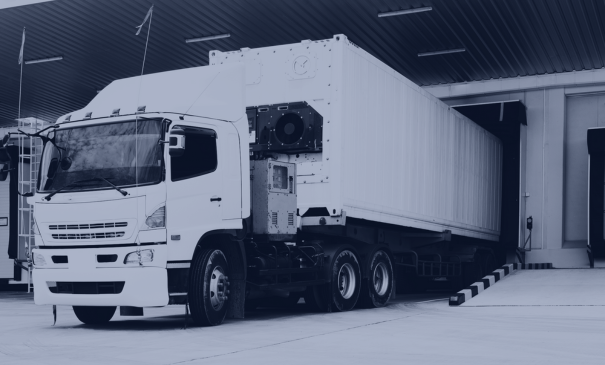
REGULOWANA TEMPERATURA
Odkryj możliwość realizacji transportu w regulowanej temperaturze na całym świecie dzięki naszej specjalistycznej usłudze. Zapewniamy nieskazitelny stan towarów przy użyciu zaawansowanych kontenerów chłodniczych.
RODZAJ POJEMNIKÓW

Kontener 20ft
Wewnętrzna:
Długość: 5.9m
Szerokość: 2,35 m
Wysokość: 2,39 m
Pojemność: 33,2 m3
Ładowność: 25 000 kg

Kontener 40ft
Wewnętrzna:
Długość: 12.03m
Szerokość: 2,4 m
Wysokość: 2,39 m
Pojemność: 67,7 m3
Ładowność: 27 600 kg

Kontener 40ft HC
Wewnętrzna:
Długość: 12.03m
Szerokość: 2,4 m
Wysokość: 2,5m
Pojemność: 76m3
Ładowność: 28 620 kg

Kontener 20ft Open Top
Wewnętrzna:
Długość: 5.90m
Szerokość: 2,34 m
Wysokość: 2.35m
Pojemność: 32m3
Ładowność: 28 200 kg
Otwór dachowy: 5,68 x 2,25 m
Kontener 40ft Open Top
Wewnętrzna:
Długość: 12.03m
Szerokość: 2,34 m
Wysokość: 2.35m
Pojemność: 64m3
Ładowność: 26 600 kg
Otwór dachowy: 11,81 x 2,22 m

Kontener 20ft Flat Rack
Wewnętrzna:
Długość: 5.70m
Szerokość: 2,35 m
Wysokość: 2.24m
Pojemność: 32,7 m3
Ładowność: 27 150 kg
Masa własna: 2 360 kg
Kontener 40ft Flat Rack
Wewnętrzna:
Długość: 11.66m
Szerokość: 2,37 m
Wysokość: 2.28m
Pojemność: 51m3
Ładowność: 39 300 kg
Masa własna: 4 900 kg

Kontener 20ft Platform
Wewnętrzna:
Długość: 6.05m
Szerokość: 2,43 m
Ładowność: 31 260 kg
Kontener 40ft Platform
Wewnętrzna:
Długość: 12.19m
Szerokość: 2,43 m
Ładowność: 39 300 kg

Kontener 20ft Reefer
Wewnętrzna:
Długość: 5.45m
Szerokość: 2,29 m
Wysokość: 2.25m
Pojemność: 28m3
Ładowność: 27 490 kg
Kontener 40ft Reefer HC
Wewnętrzna:
Długość: 11.58m
Szerokość: 2,29 m
Wysokość: 2.50m
Pojemność: 67m3
Ładowność: 28 350 kg
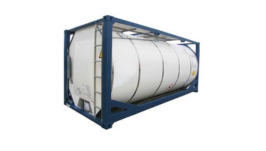
Kontener Tank (Zbiornik)
Wewnętrzna:
Długość: 6.05m
Szerokość: 2,40 m
Wysokość: 2.55m
Pojemność: 32m3
Ładowność: od 17 500 do 26 000 litrów

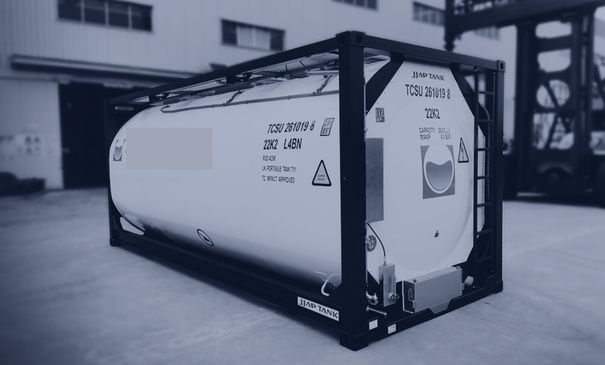

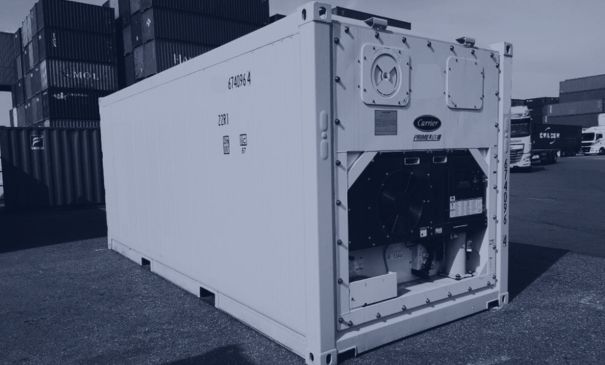
RODZAJ ŁADUNKU
- ŁADUNEK OGÓLNY
- ŁADUNEK SPECJALNY
- ŁADUNEK GRUPOWY
- TOWARY PRZEMYSŁU LEKKIEGO
- TOWARY PRZEMYSŁU CIĘŻKIEGO
- ŁADUNKI O WYSOKIEJ WARTOŚCI
- SPRZĘT WIERTNICZY
- ŁADUNEK NIEBEZPIECZNY
- LINIA PRODUKCYJNA
- PRZYSPIESZONA DOSTAWA
- URZĄDZENIA PRZEMYSŁOWE
- ŁADUNEK PONADGABARYTOWY
- ŁATWO PSUJĄCY SIĘ ŁADUNEK
- REGULOWANA TEMPERATURA
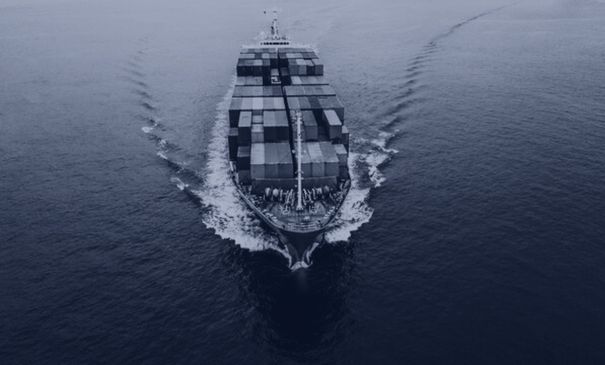
WYSYŁAMY ŁADUNKI NA CAŁY ŚWIAT
Kraje na świecie
0
ton miesięcznie
0
+
przewoźnicy w sieci
0
+
środki transportu
0
więcej zadowolonych klientów
0
+
lat w branży
0
NAJCZĘŚCIEJ ZADAWANE PYTANIA
Dlaczego warto wybrać transport morski zamiast innych środków transportu?
Żegluga morska oferuje szereg korzyści, w tym opłacalność w przypadku dużych przesyłek, możliwość transportu nieporęcznych lub ciężkich ładunków, globalny zasięg łączący różne porty oraz mniejszy wpływ na środowisko w porównaniu z frachtem lotniczym.
Jak długo trwa transport morski?
Czas trwania transportu morskiego zależy od kilku czynników, takich jak odległość między portami, trasa transportu, warunki pogodowe i rodzaj wybranej usługi. Ogólnie rzecz biorąc, może on wynosić od kilku dni do kilku tygodni, a nawet miesięcy w przypadku rejsów długodystansowych.
Jakie rodzaje ładunków można przewozić drogą morską?
Praktycznie każdy rodzaj ładunku może być transportowany drogą morską, w tym towary suche (takie jak elektronika, odzież i maszyny), towary płynne (takie jak ropa naftowa i chemikalia), towary łatwo psujące się (takie jak owoce i warzywa), a nawet pojazdy lub ciężki sprzęt.
Jak obliczyć koszty wysyłki morskiej?
Koszty transportu morskiego są zazwyczaj określane na podstawie takich czynników, jak objętość ładunku, waga, przebyta odległość, trasa wysyłki, rodzaj usługi (ładunek pełnokontenerowy – FCL lub ładunek mniejszy niż kontener – LCL) oraz wymagane usługi dodatkowe (takie jak odprawa celna lub ubezpieczenie). Aby uzyskać dokładne szacunki kosztów, najlepiej skontaktować się ze spedytorami takimi jak my.
Czy istnieją jakieś ograniczenia dotyczące tego, co może być wysyłane drogą morską?
Tak, istnieją pewne ograniczenia dotyczące wysyłki materiałów niebezpiecznych, przedmiotów łatwo psujących się lub towarów podlegających międzynarodowym przepisom handlowym. Ważne jest, aby skonsultować się z ekspertami ds. transportu lub zapoznać się z przepisami obowiązującymi w danym kraju, aby zapewnić zgodność.
Jak mogę śledzić przesyłkę podczas transportu morskiego?
Zapewniamy systemy śledzenia online, w których można monitorować postęp przesyłki. Zazwyczaj otrzymujesz numer śledzenia lub kod referencyjny, który umożliwia dostęp do aktualizowanych w czasie rzeczywistym informacji o lokalizacji i statusie ładunku.
Co się stanie, jeśli mój ładunek zostanie uszkodzony podczas transportu morskiego?
W przypadku uszkodzenia lub utraty ładunku bardzo ważne jest posiadanie ubezpieczenia. Powinieneś natychmiast skontaktować się ze spedytorem, aby zgłosić problem i rozpocząć proces roszczeń. Zachowaj całą odpowiednią dokumentację i dowody na poparcie swoich roszczeń.
Jakie dokumenty są wymagane w przypadku transportu morskiego?
Transport morski wymaga kilku dokumentów, aby zapewnić sprawny transport i zgodność z międzynarodowymi przepisami. Niektóre typowe dokumenty obejmują fakturę handlową, listę przewozową, konosament, licencje eksportowe/importowe, deklarację celną i wszelkie niezbędne certyfikaty (np. świadectwo fitosanitarne dla produktów rolnych). Konkretne wymagane dokumenty mogą się różnić w zależności od charakteru ładunku i zaangażowanych krajów. Wskazane jest skonsultowanie się z naszymi ekspertami, aby zrozumieć dokładne wymagania dotyczące dokumentacji dla danej przesyłki.
PORTY, W KTÓRYCH DZIAŁAMY
EUROPA
Port of Rotterdam
Port of Antwerp
Port of Hamburg
Port of Amsterdam
Port of Algeciras
Port of Marseille
Port of Valencia
Port of Bergen
Port of Trieste
Port of Le Havre
Port of Barcelona
Port of Constanța
Port of Genoa
Port of Piraeus
Port of Bremerhaven
Port of Gdańsk
Port of Sines
Port of Klaipėda
Port of Dunkirk
Port of Gothenburg
Port of Ambarlı
Port of Wilhelmshaven
Port of Tallinn
Port of Riga
Port of Taranto
Port of Immingham
Port of London
Port of Milford Haven
Port of Southampton
AMERYKA PÓŁNOCNA
Port Everglades
Port Tampa
Port Jacksonville
Port Mobile
Port Savannah
Port Freeport
Port Memphis
Port Louisville
Port Indianapolis
Port Elizabeth
Port Wilmington
Port Newport
Port Cleveland
Port Minneapolis/St Paul Apt
Port Salt Lake City
Port San Francisco
Port Edmonton
Port Calgary
Port Saskatoon
Port Edmonton
Port Nanaimo
Port Prince Rupert
Port Winnipeg
Port Toronto
Port Montreal
Port St John’s
Port Halifax
Port Ensenada
Port Guaymas
Port Manzanillo
Port Lazaro Cardenas
Port Altamira
Port Veracruz
Port Yukalpeten
Port Ciudad del Carmen
Port Monterrey
Los Angeles Port
Long Beach Port
New York & New Jersey Port
Port of Houston
Oakland Port
South Carolina (Port Charleston)
Virginia (Norfolk Port)
Maryland (Baltimore Port)
Seattle-Tacoma Port
Georgia Ports (Savannah and Brunswick)
Port of Vancouver
AMERYKA POŁUDNIOWA
Port of Itaqui, Brazil
Port of Tubarao, Brazil
Port of Callao, Peru
Port of San Lorenzo-San Martin, Argentina
Port of Cartagena, Colombia
Port of San Antonio, Chile
AZJA
Port of Singapore
Port of Ningbo-Zhoushan
Port of Shenzhen
Port of Guangzhou
Port of Qingdao
Port of Busan
Port of Tianjin
Port of Hong Kong
Port of Jebel Ali
Port of Port Klang
Port of Xiamen
Port of Tanjung Pelepas
Port of Kaohsiung
Port of Laem Chabang
Port of Saigon
Port of Colombo
Port of Taicang / Suzhou
Port of Tanjung Priok
Port of Mundra
Port of Hai Phong
Port of Nhava Sheva
Port of Mumbai
Port of Vũng Tàu
Port of Piraeus
Port of Yingkou
Port of Rizhao
Port of Lianyungang
Port of Manila
Port of Jeddah
Port of Qinzhou
Port of Salalah
Port of Tokyo
Port of Tanjung Perak
Port of Dalian
AFRYKA
Port of Mombasa, Kenya
Port of Suez, Egypt
Port of Durban, South Africa
Port of Lagos, Nigeria
Dar-es-Salaam Port, Tanzania
Port of Abidjan, Ivory Coast
Port of Beira, Mozambique
Port of Tanger Med, Morocco
Port of Walvis Bay, Namibia
Port of Djibouti, Republic of Djibouti
INNE ROZWIĄZANIA
Potrzebujesz konsultacji? Nasi specjaliści służą pomocą. Skontaktuj się z nami, a znajdziemy dla Ciebie najlepsze rozwiązanie.
Nasi specjaliści służą pomocą. Skontaktuj się z nami, a znajdziemy dla Ciebie najlepsze rozwiązanie.

We use cookies to ensure that we give you the best experience on our website. If you continue to use this site we will assume that you are happy with it.Ok
